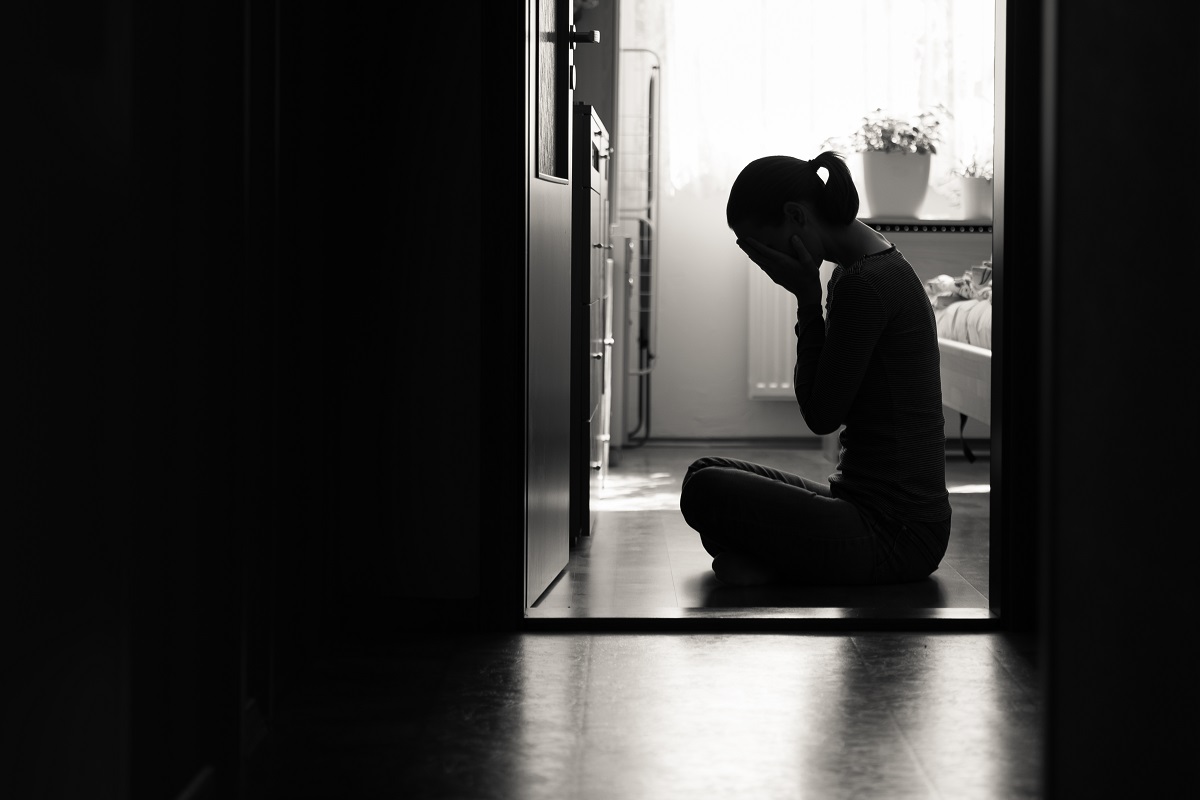What do you think of this article?
By Dr. David Woo - Published on July 4, 2022
Last updated on April 21, 2024

Depression is one of the most common mental health conditions in the US, affecting roughly 21 million adults.(1) Depression affects how someone feels, thinks, and can even impair their ability to perform daily tasks. Some people with severe depression may experience delusions and hallucinations, symptoms of psychosis. When patients with a primary diagnosis of major depressive disorder (MDD) also experience psychotic symptoms, this is referred to as psychotic depression.(2,3)
Psychotic Depression – When Depression Patients Also Have Symptoms of Psychosis
Symptoms of Psychotic Depression
People with psychotic depression show symptoms of both depression and psychosis.(2,3)
Depression affects one’s emotions, cognition, and behavior, and is characterized by numerous symptoms, including:
- Sadness, irritability, and anxiety
- Loss of interest in activities that one used to enjoy
- Lethargy
- Irregular sleep
- Feelings of guilt or worthlessness
- Cognitive issues, such as difficulty with memory or focus
- Suicidal thoughts (4)
Psychosis may occur episodically, meaning that symptoms may be present in some moments and absent in others.(2) Psychosis is associated with:
- Delusional behavior: Believing and reacting to things that aren’t true or aren’t based in reality
- Hallucinations: Unreal sensory experiences that appear to be real and can affect any of the five senses, such as seeing things that aren’t there
In addition to the symptoms listed above, psychotic depression may also result in:
- Psychomotor impairment: Occurs when there is a disruption between the mental and muscle functions of the body, which can affect the way someone talks or moves.
- Stupor: An unresponsive state of near-unconsciousness(5)
How Often Does Psychotic Depression Occur?
Roughly 10-19% of adults experiencing a depressive episode also have psychotic symptoms.(6) In elderly patients hospitalized for depression, as many as 53% display psychotic symptoms.(7)
While we don’t know exactly what causes psychosis in people with depression, researchers are working to understand the relevant differences between depression patients who experience psychotic symptoms and depression patients who don’t. For instance, childhood trauma, a predictor of clinical depression, is 2 to 15 times more prevalent among those with psychotic depression than those without psychotic symptoms.(8)
Treatment for Psychotic Depression
Psychotherapy (Talk Therapy)
While talk therapy may not relieve symptoms of psychosis, certain types of talk therapy, like cognitive behavioral therapy (CBT), have proved to help patients with psychotic depression cope with and accept their diagnosis.(9)
Medication
Standard treatment for patients with psychotic depression typically involves antidepressant and antipsychotic medications. Taken together, these prescriptions generally help to reduce the severity of both depressive and psychotic symptoms.(3)
Electroconvulsive Therapy (ECT)
ECT is a method that is administered to patients under anesthesia where electrical impulses are delivered to the brain. It is a highly effective form of therapy offered to individuals with severe MDD who are unresponsive to medication and other therapies.(10)
Transcranial Magnetic Stimulation (dTMS)
Transcranial magnetic stimulation (dTMS) is a non-invasive treatment option that uses magnetic pulses to regulate overactive and underactive regions of the brain. A literary review of multiple published studies, shows that TMS could be effective in reducing symptoms of psychosis, such as hallucinations and delusions.(11)
Do You or a Loved One Have Symptoms of Depression and/or Psychosis?
If you or a loved one are experiencing symptoms of depression or psychosis, seek help from a mental health professional. At Madison Ave TMS & Psychiatry, we can help you get the care you need. Contact us online or call (212) 731-2033 to make an appointment with a licensed healthcare professional today.
Resources:
1. Major Depression. National Institute of Mental Health. Publication Date Unknown. Updated January 2022. Link.
2. Psychotic depression. NHS. Updated Dec 10, 2019. Link. Accessed June 6, 2022.
3. Dubovsky, S. L., Ghosh, B. M., Serotte, J. C., & Cranwell, V. (2021). Psychotic Depression: Diagnosis, Differential Diagnosis, and Treatment. Psychotherapy and psychosomatics, 90(3), 160–177. Link. Accessed June 6, 2022.
4. Depression (major depressive disorder). Mayoclinic. Updated February 3, 2018. Link. Accessed June 6, 2022.
5. Major Depression with Psychotic Features (Psychotic Depression). Healthline. Updated January 13, 2016. Link. Accessed June 6, 2022.
6. Carlson GA. Affective disorders and psychosis in youth. Child Adolesc Psychiatr Clin N Am. 2013 Oct;22(4):569–80. Link. Accessed June 6, 2022.
7. Rothschild AJ. Challenges in the treatment of major depressive disorder with psychotic features. Schizophr Bull. 2013 Jul;39(4):787–96. Link. Accessed June 6, 2022.
8. Gaudiano BA, Zimmerman M. The relationship between childhood trauma history and the psychotic subtype of major depression. Acta Psychiatr Scand. 2010 Jun;121(6):462–70. Link. Accessed June 6, 2022.
9. Rückl S, Gentner NC, Büche L, Backenstrass M, Barthel A, Vedder H, et al. Coping with delusions in schizophrenia and affective disorder with psychotic symptoms: the relationship between coping strategies and dimensions of delusion. Psychopathology. 2015;48(1):11–7. Link. Accessed June 6, 2022.
10. What is Electroconvulsive Therapy (ECT)? American Psychiatric Association. Published July 2019. Link. Accessed June 6, 2022.
11. Cole JC, Green Bernacki C, Helmer A, Pinninti N, O’reardon JP. Efficacy of Transcranial Magnetic Stimulation (TMS) in the Treatment of Schizophrenia: A Review of the Literature to Date. Innov Clin Neurosci. 2015;12(7-8):12-19. Link. Accessed June 12, 2022.
Dr. David Woo is the owner and head clinical psychiatrist at Madison Avenue TMS and Therapy in New York City. Dr. Woo has been seeing patients in private practice since 2002, always with the goals of combining evidence-based medicine with psychodynamic psychotherapy and collaborating with other mental health professionals to ensure the best possible outcomes for his patients. He has been certified to administer TMS at his practice since 2017. His greatest clinical interests include helping patients suffering from depression, anxiety, and obsessive compulsive disorder.
Follow Dr. Woo On









